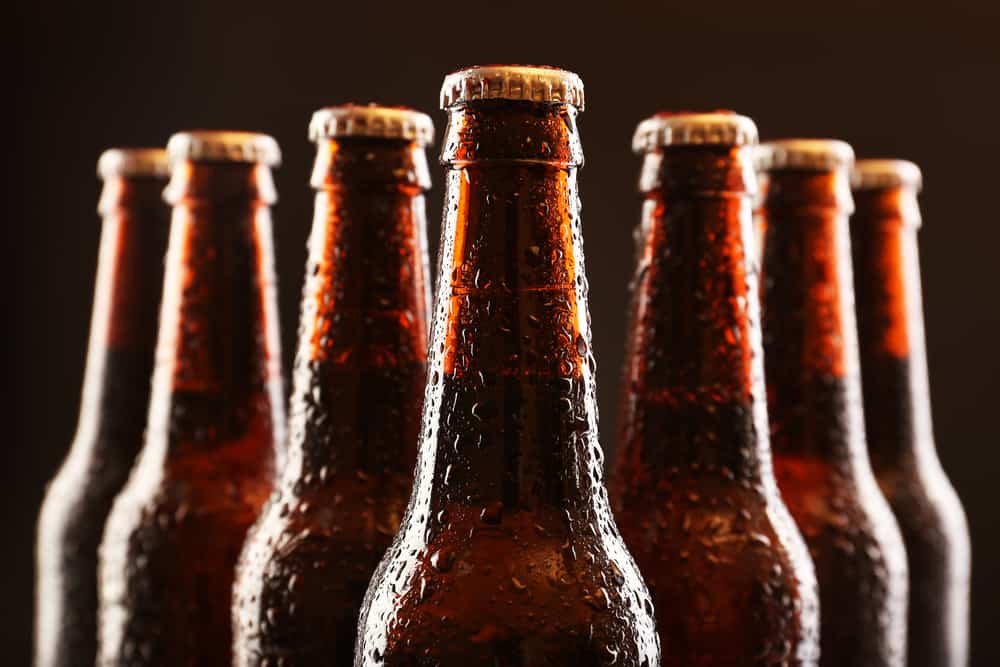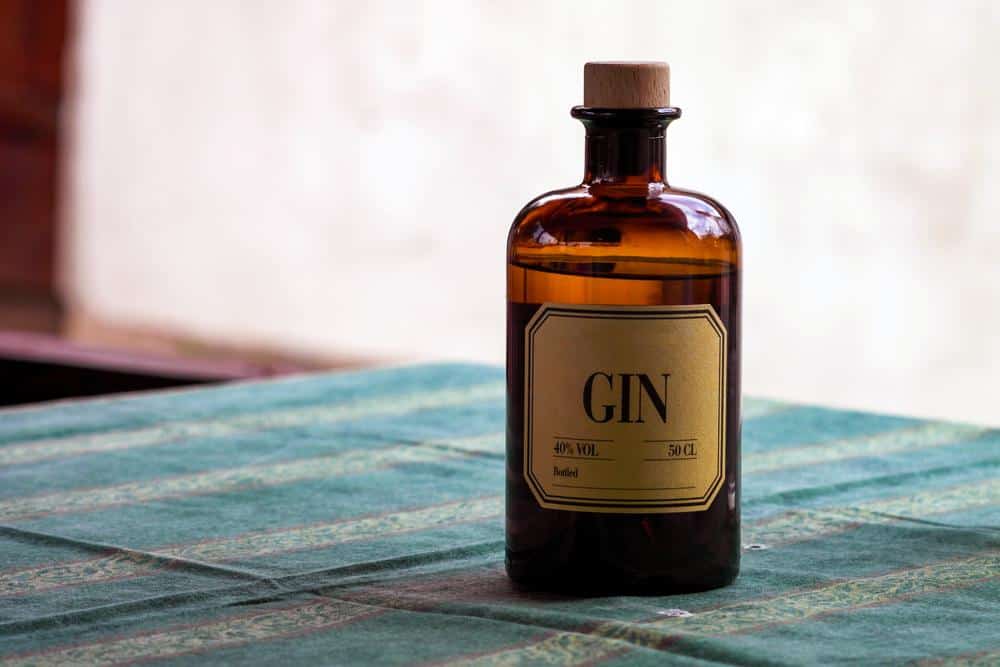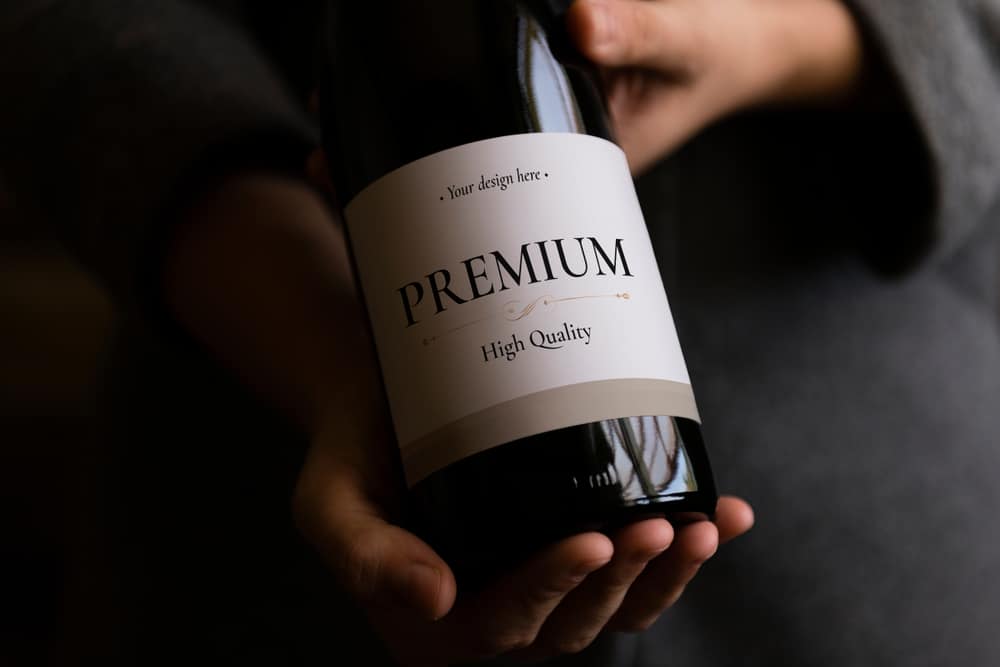Almost everyone attempts quick-cooling a can of beer in the freezer. But if you’ve put a drink in the freezer, then forgotten about it, you may already know that not every alcoholic beverage belongs in the freezer.
So what alcohol can you can keep in a freezer? Read on to learn about which drinks you can pop in your freezer. There are also detailed instructions on how to store your favorite liquors properly.
What alcohol can you keep in the freezer? The answer isn’t so straightforward.
A few simple rules of thumb promote safe storage and pleasant consumption of various types of liquors and hard alcohol. Understanding each liquid’s freezing point and how extreme temperatures affect flavor represents the two critical factors for proper liquor storage.
Each alcohol receives an ABV rating or alcohol by volume. This number, shown as a percentage, represents the alcohol content per 100 millimeters of a solution. For example, common craft beers receive an ABV of about 8 percent.
The part of the solution that is not measured by the ABV is typically water. In our craft beer example, about 90 percent of the solution is water.
Water freezes at 32 degrees Fahrenheit, a much higher temperature than alcohol. This means a can of beer’s freezing point is also 32 degrees Fahrenheit, as beer is mostly water.
The recommended freezer temperature for home units is zero degrees Fahrenheit. So any typical home freezer will swiftly freeze and compromise beer or other similar beverages stored for too long.
When a solution consisting mainly of water freezes, it also expands. Shattered glass bottles of wine or jagged shards of aluminum beer cans turn freezers into safety risks when these beverages chill for too long.
To freeze pure alcohol, the liquid must reach -173 degrees Fahrenheit. Typical hard alcohol is 80 proof, which means it is 40 percent ABV. This liquor must reach a temperature of -17 degrees Fahrenheit to freeze. An average home freezer will never reach this extreme temperature, so many liquors can be stored in the freezer.
In addition to freezing point, considering the individual flavor of your liquor is an important consideration. All liquids change flavors and aromatic experiences at different temperatures. Think about a frosty Coca-Cola versus a room-temperature one.
Alcohols provide a spectrum of smells and tastes as they cool or warm. Depending on the alcohol you choose, the optimum smell, taste, or feel occurs at a different temperature.
Oxidation presents another challenge to keeping alcohol at its peak flavor. Oxidation is the introduction of abundant oxygen, which causes a chemical reaction. This phenomenon occurs when alcohols experience:
Permeable closures are stoppers, such as corks or pour spouts, instead of screw tops.
Here is how to properly store these alcoholic beverages to avoid safety risks.
As discussed earlier, beer should never be stored in the freezer because of its low ABV, and therefore much higher freezing point. However, beer has more delicate storage needs than casual beer drinkers may realize.
Most beers taste best at a refrigerated temperature or about 33 degrees Fahrenheit. Some beer cans are now designed to change their appearance when the desired temperature is reached.
India Pale Ales, or IPAs, should be consumed quickly. These very popular beers deliver a signature bitter taste, driven by abundant hops. These hops, a plant matter, continue to ferment and change as the beer ages.
It’s best to drink an IPA, amber lager, or other assertive, hop-heavy brew within 90 days of bottling.

Compared to other alcoholic beverages, beer has a low ABV and will freeze solid in your freezer
All beers reach an expiration date based on their storage method. While craft beers are more delicate, all beers degrade if certain temperature conditions exist. There are various situations in which beer becomes undrinkable, such as:
A beer’s ABV influences its storage method. The higher the ABV, the longer a beer will last. Beers above 8 percent ABV reach the “high-alcohol” beer category. Sours and smoked beers, like a porter, have a very long shelf life.
Like wine, brandy comes from a fermented fruit mash. While commonly made of grapes, brandy made from apples, plums, or cherries appears at celebrations and on dessert menus everywhere.
Unlike wine, brandy holds a 35 to 60 percent ABV. Brandy does not expire and technically could be frozen. However, brandy’s multidimensional flavors are best appreciated when stored at room temp.
Gin most closely resembles vodka compared to other hard liquors on this list. With an ABV of around 37 percent, gin can be frozen. In fact, gin thrives in the freezer! The best way to sip and savor gin is at an ice-cold temperature.

Gin has a very high alcohol content and does well in the freezer
Rum contains many of the same characteristics as the other hard liquors previously mentioned. This spicy alcohol boosts hot toddies and festive drinks. Consider keeping this liquor at room temperature in a closet or bar cart.
If you decide to store rum in your freezer, that’s ok! You won’t do damage to the liquor. However, let the rum, like brandy, tequila, and whiskey, warm up to room temperature for the best flavors.
Specialty liqueurs can often be stored in the freezer. Some examples of specialty liqueurs that can be frozen include:
If freezer space is limited, consider tossing these into the freezer for one hour before serving.
Enjoy the layered flavors of your favorite tequila by simply storing it at room temp. With an ABV of about 40 percent, tequila will not freeze or become damaged in the freezer. However, freezer storage is not necessary. Waiting for tequila to warm can also be inconvenient.
Whiskey ABV ranges from 43 percent to a whopping 68 percent. Whiskeys vary greatly, from their country of origin to flavor additives. Sip and savor whiskey at room temperature for best results. Freezing whiskey is possible without risk but is not necessarily efficient.
If you drink whiskey chilled, it will taste significantly different. Experiment with temperatures to discover the array of flavor profiles and determine your favorite.
Famously, white wine is chilled. Red wine sits at room temperature. However, because of the low ABV of wine, don’t freeze any varietal of wine. If you choose to freeze wine, the bottle will shatter. In addition to the safety risks, all wine will be contaminated or otherwise undrinkable.

Wine has relatively low ABV and should be enjoyed chilled, not frozen - don’t put it in the freezer
Alcoholic beverages like sherry, port, Madeira, and vermouth are fortified wines. These drinks are wines with a distilled spirit added. Most fortified wines use brandy as the distilled spirit. Fortified wines boast an ABV topping 20 percent, but will become a slush if left in the freezer.
Vodka is the original liquor people think of for freezer storage. But, manufacturers, like the legendary CEO of Grey Goose Vodka Francois Thibault, have warned against storing vodka in the freezer.
What alcohol can you keep in a freezer if not vodka? It might seem strange but freezing vodka can affect the taste of the beverage.
Like gin, vodka savoring at room temperature is rare. Instead, store your vodka in the fridge to get it cold without ruining the taste.
Vodka becomes thicker when frozen, providing a unique mouthfeel. This viscosity is vodka’s response to extreme cold. With an ABV of 40 percent, vodka will not freeze.
